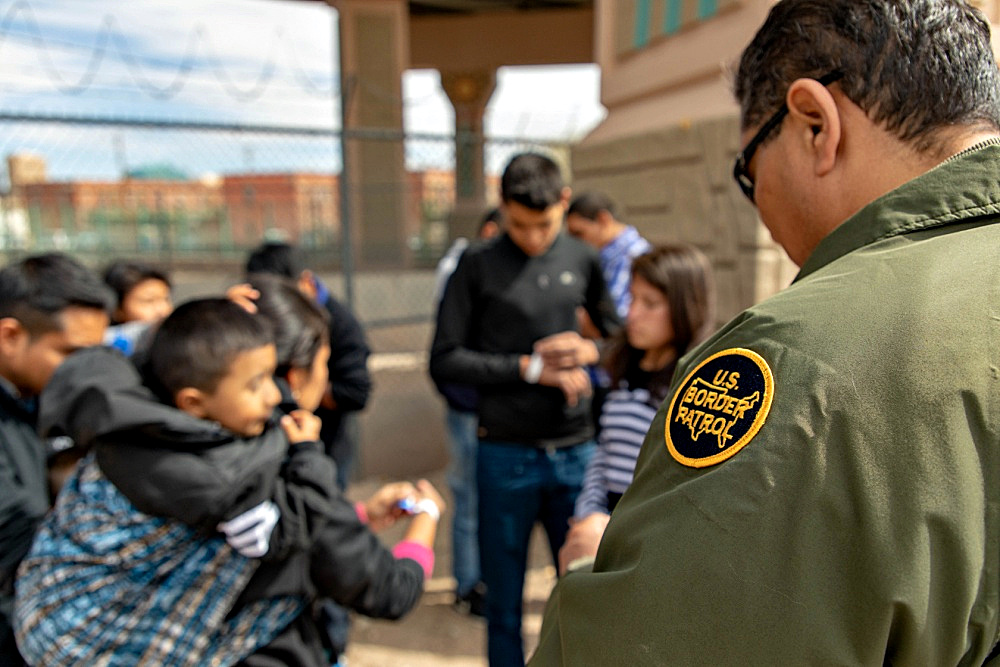CBP Hotline: When someone crosses the border to seek asylum in the United States, they often first go through a credible fear interview (CFI). An asylum officer evaluates a person’s fear of returning to their home country and decides whether they will be allowed to apply for asylum and other forms of protection. Because it determines access to the asylum process, the credible fear interview can have life-or-death consequences.
The American Immigration Council needs help preparing individuals for these interviews.
The History of Credible Fear Interviews
Usually, CFIs happen after the person has been released from U.S. Customs and Border Protection (CBP) custody. After CBP processing, the person is either sent to an ICE detention facility or released into the community to await their CFI. However, in April 2023, the Department of Homeland Security (DHS) and the Department of Justice started conducting CFIs in CBP facilities, a revived Trump-era approach that races through this fear interview process on a shortened timeline in a process called “Enhanced Expedited Removal.” Asylum seekers in this program are processed in CBP custody in as little as 24 hours, almost immediately after being detained without access to in-person counsel.
In November 2023, the Office of Inspector General of DHS conducted an unannounced inspection of the facilities in the San Diego area where this program was being implemented. It reported problems with overcrowding, prolonged detention, and other systemic issues.
The return to this fast-tracked process was met with immediate calls from members of Congress and over a hundred civil, human rights, faith-based, and immigration groups to end the program. The groups argued that it forces asylum seekers with credible fear claims to navigate a complicated system with no legal counsel, considerably compromising our asylum system.
A year later – CFIs in CBP custody continue, as do the concerns for their impact on our asylum system.
Organizations including the Council, Border Project, RAICES, and the American Bar Association Commission on Immigration are working with CBP to provide CFI preparation over the phone for people subjected to the program. However, expediting the CFI process to as little as 24 hours after being detained means there is a limited window for asylum seekers to call an available hotline. Even when the CFI is conducted after the 24-hour window, call times are inconsistent, leading people to call outside of hotline hours of operations. Asylum officers are conducting interviews at all hours of the day and night, seven days a week.
Providing CFI preparation over the phone is not sufficient for this overwhelming, rushed CFI process – but it is the only option for many fleeing violence and persecution, and even that support is not guaranteed. Without this preparation, accessing our asylum process is nearly impossible. CBP has given unofficial numbers that the pass rate for CFIs in CBP custody hovers around an abysmal 23%.
Aside from providing sufficient guidance for people seeking asylum, these calls are also the only way to collect information about how this program is being conducted. Advocates have no in-person access to the CBP facilities conducting CFIs so speaking with people enrolled in the program itself is crucial to ensuring even a basic understanding of the process and standard they are expected to navigate.
Without the hotline, this information would be hidden behind the walls of CBP facilities.
What Can You Do?
We have expanded hours to field as many calls as possible and are looking for more volunteers to support. All volunteers must know Spanish and undergo a short vetting process.
If you are interested in volunteering, please follow this link for more information. For questions, email Pablo at [email protected].
Below are testimonies from current volunteers:
I volunteer with the American Immigration Council because speaking to detained persons and providing them with as much information as possible makes them feel empowered and a little less helpless and desperate. With just a couple hours a week, you have the opportunity to assist a person who is simply looking for a better life here in the U.S., which is something we all want. – Santiago
This project offers its volunteers the opportunity to help people in dire need to seek a safe and healthy future. I find it very meaningful to be a part of the process, however small my own contributions may be to the overall, marvelous work of the AIC. – Seth
FILED UNDER: Asylum, Customs and Border Protection













